25 Extra Grocery Costs You’re Probably Forgetting About
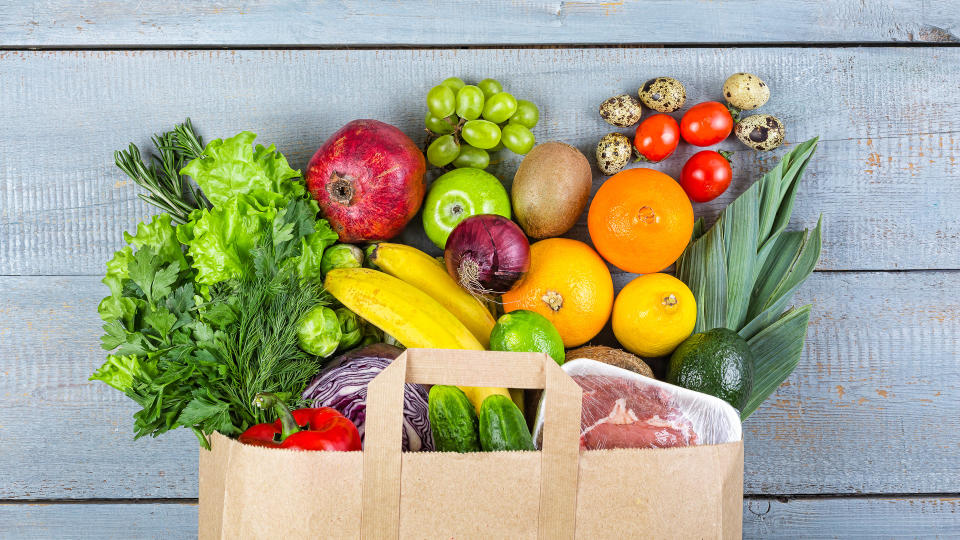
If you're like most people, you have a grocery budget, which means you have allotted a certain amount of money for each trip to the store. Depending on price bumps and whether you're forced to substitute a more expensive product for the one you actually wanted, it can be tough to roll out of the grocery store without going over your set-aside amount.
Read: 9 Money Moves To Make Now — If You Have $1,000 in Your Account
Read More: Here's How To Cut Costs on Car Repairs
But there are certain items you might be buying at the grocery store that can cost more than what you really have to pay. For example, some products might be convenient to use, but the price you're paying to escape food prep might not be worth it. Other products just aren't wise to buy at the grocery store because you can purchase the same thing much cheaper somewhere else.
Last updated: Oct. 7, 2021
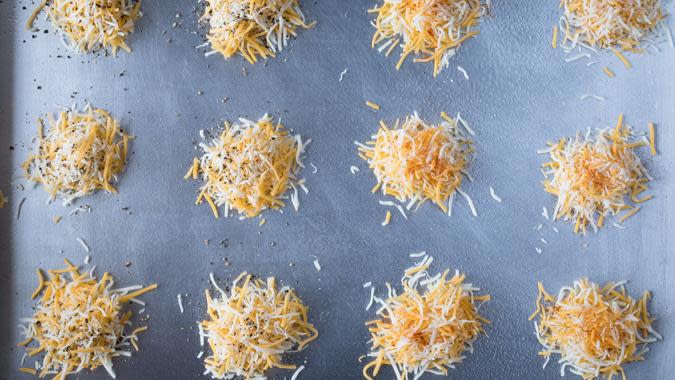
1. Shredded Cheese
At the grocery store, you can purchase 32 ounces of medium cheddar cheese in a block for $7.99, or 25 cents per ounce. But if you opt for 8 ounces of the same brand of shredded medium cheddar cheese, you'll pay $3.29, or about 41 cents per ounce.
The hidden cost comes from the extra labor required to shred the cheese. It might be worth it to buy shredded cheese if you want a special mixture of cheese that you can't get from a single block, or if you are making a dish that requires a ton of work and could use a shortcut.
See: Shopping Mistakes You’re Making and How To Stop
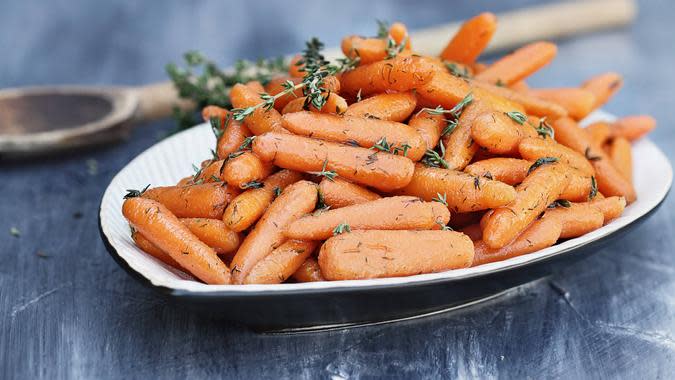
2. Baby Carrots
Baby carrots are the perfect finger food that's not laden with calories or fat. But baby carrots aren't grown; they're crafted from whole carrots. And you'll pay extra for the labor that's used to make them.
To find out just how much more, consider that 2 pounds of prepacked whole carrots are $1.29, or 65 cents per pound at the supermarket. But 1 pound of baby carrots costs 99 cents, or 34 cents more per pound.
Related: 15 Times You Should Splurge, Settle or Skip When Shopping
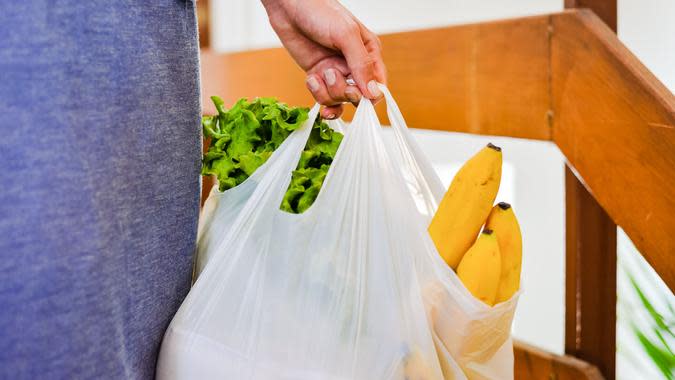
3. Bag Fees
Plastic bags are littering landfills, clogging waterways and putting wildlife in danger, and states want to put a stop to their use. On Jan. 1, 2021, Washington will become the latest state to ban single-use plastic bags, and shoppers will be charged 8 cents for a paper bag at the store. California, Connecticut, New York and Oregon are among the states that already have such a law on the books.
If you shop once or twice a month, make a big grocery haul and have the store bag your items, you could pay a few dollars in bag fees each time. Avoid the extra cost by bringing your own reusable bags.
Read More: 25 Cheap Frozen Foods That Are Actually Good for You
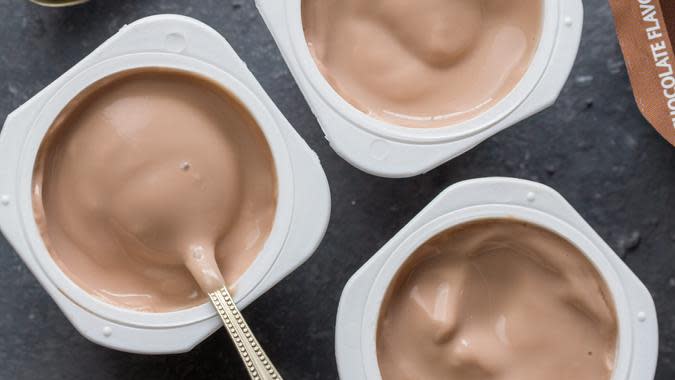
4. Jell-O Refrigerated Pudding Snacks
Jell-O refrigerated pudding snacks have a lot going for them. They're the perfect portion size to satisfy a craving for something smooth and sweet. Plus, they come in a convenient cup with a peel-off lid. But again, you will pay extra for the convenience.
For a package of four Jell-O refrigerated pudding snacks, you'll spend $2.69, or around 67 cents per serving. You can spend a whole lot less, however, if you make your own. A box of Jell-O instant pudding mix makes four 1/2-cup servings and costs $1.49. That means each serving is 37 cents, plus the cost of the 2 cups of milk needed for the recipe. Still, the pudding batch you make will cost considerably less than the premade refrigerated pudding.
See: 37 Life Hacks That Will Save You Money
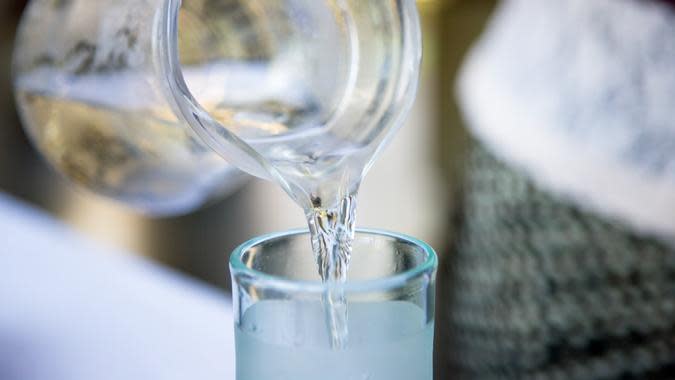
5. Drinking Water
You might be saving money by passing up individual bottles of drinking water in the grocery store aisle, choosing water in larger jugs instead. You could be saving a whole lot more, however.
Self-service refill water costs 35 cents per gallon on average, which equals $1.75 per five gallons. All you have to do to get started is buy a 5-gallon bottle and a dispenser. A countertop water dispenser is $40.78, and a 5-gallon water bottle is $9.88.
By contrast, five 1-gallon jugs of drinking water at the supermarket cost $5 — close to three times the price of the refill water. Your cost savings on your first 80 gallons of water will pay for the initial investment in the dispenser and bottle — and then you can watch the savings pour in.
To Manage Your Grocery Bill: How To Create a Budget You Can Live With

6. Individual Cereal Cups
When you're crunched for time in the morning, what could be better than having your cereal pre-portioned in a disposable bowl? All you have to do is open it, pour the milk and enjoy. The best part is that there won't be a dirty bowl to deal with afterward. You simply can rinse it out and put it in your recycling bin.
If you don't like to waste money or you're grocery shopping on a budget, however, you might want to rethink your breakfast plan. For example, 1 1/2 ounces of Froot Loops in a Cup retails for $1.49, or 99 cents per ounce. But a 14.7-ounce box of Froot Loops sells for $4.99, which equals just a little over 34 cents per ounce. That is approximately one-third of the cost of the cereal in the cup version.
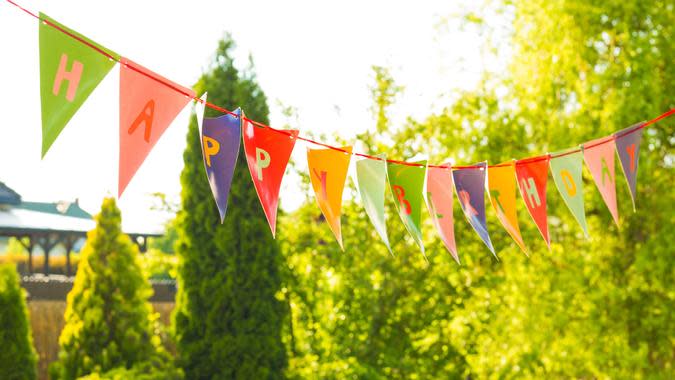
7. Party Supplies
Although you might be tempted to pick up party supplies while grocery shopping, it's not the cheapest option. You can find better-priced party supplies at discount stores or dollar stores. Dollar stores often buy in bulk, purchase overstocked items and sell less-durable items, which is why you often can find much better deals there.
To get an idea of how much you can save by buying party supplies somewhere else, Dollar General sells a 13-piece party decorating set for $5, which contains two banners, two centerpieces, three hanging decorations and six balloons. At the grocery store, you'll pay around $2 for a single banner.
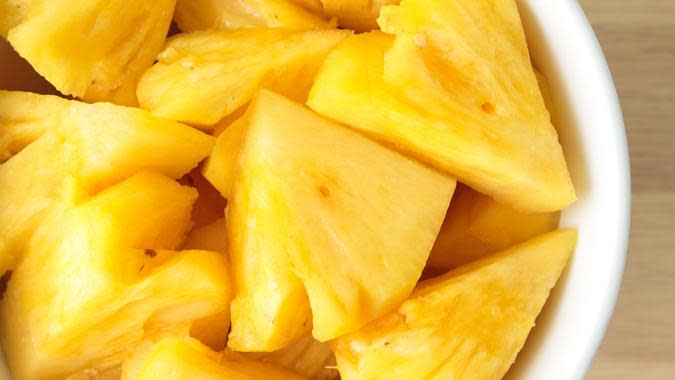
8. Cut-Up Fresh Pineapple
An average-sized pineapple, which retails for about $3.99 at the grocery store, yields approximately 4 1/2 cups of 1-inch pineapple cubes. In all, you'll get about 6 ounces of pineapple in a cup, or a total of 36 ounces per pineapple at a cost of approximately 11 cents per ounce. A 24-ounce bowl of cut-up fresh pineapple is $4.99, or about 21 cents per ounce. Ounce-to-ounce comparison aside, you're getting an additional 1 1/2 cups of pineapple for $1 less if you do it yourself.
And if the prickly exterior of this tropical fruit is what's keeping you from cutting up your own pineapple, stop worrying. There are plenty of online tutorials available that will have you slicing and dicing like a pineapple pro in no time.
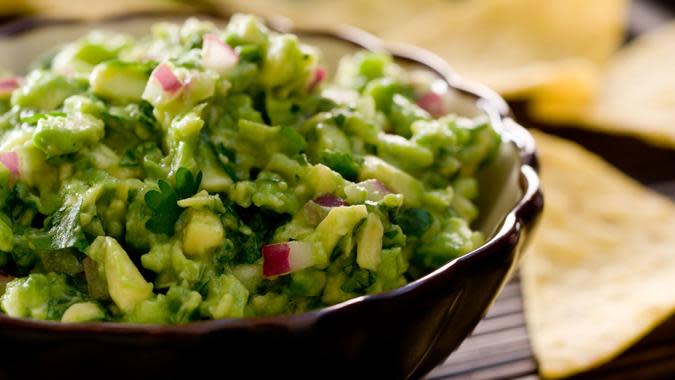
9. Prepared Guacamole
According to CNBC Make It, the average cost of homemade guacamole, following a basic recipe, is 20 cents per ounce. If you opt for the prepared version of grocery store guac, you'll pay 43 cents per ounce, or more than double the cost if you make it yourself.
Another reason to make your own guacamole is to avoid the unwanted extras that store-bought versions might contain, such as larger quantities of salt, artificial flavorings or added sugar.
Save Up: Americans’ Savings Drop to Lowest Point in Years
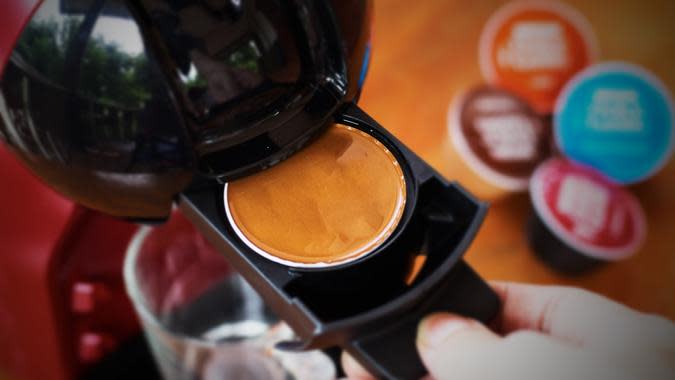
10. Coffee Pods
Sure, coffee pods are convenient, but you're not getting anywhere near the bang for your buck when you opt for these over a bag of grounds.
Starbucks recommends 2 tablespoons — or 10 grams — of ground coffee per 6-ounce cup, and a 12-ounce bag of coffee equals 340 grams. You could get 34 cups from a 12-ounce bag — maybe more if you don't use 2 tablespoons per cup.
A 12-ounce bag of Starbucks Breakfast Blend is $9.99, and a package of 10 Starbucks K-Cups costs the same. You can get more than three times the number of cups of coffee out of the bag than the pods for the same price.
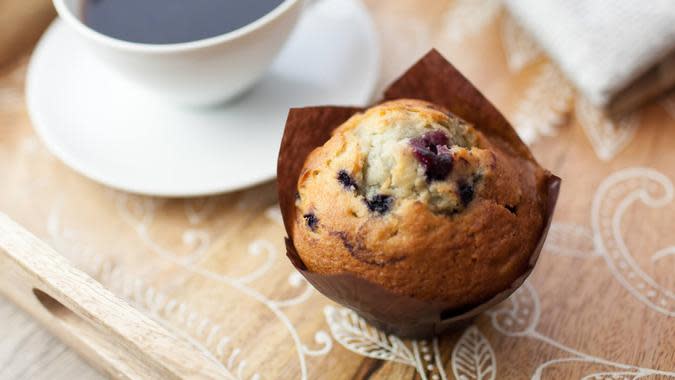
11. Baked Goods
It's easy to pick up bakery muffins to enjoy in the morning or as an afternoon snack. But at what cost? You might be surprised to find out just how many more muffins you could get for your money by baking them.
A 12-count package of mini-muffins from the grocery store bakery costs $3.99. One box of Krusteaz 18.6-ounce box of muffin mix yields 26 to 30 mini muffins for the same price. Even with the cost of adding your own eggs and vegetable oil to the mix, you can get more than double the muffins at about the same price if you make them yourself.
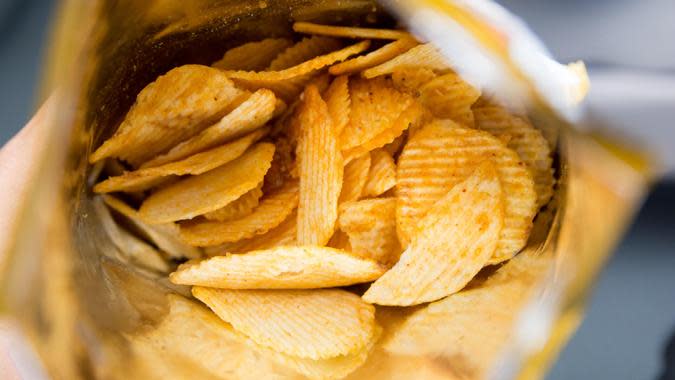
12. Snack-Size Bags
Although no one can argue that snack-size bags aren't convenient, you'll have to decide how much the convenience is worth to you. A package of 18 single-ounce bags of assorted chips costs $9.49, or approximately 53 cents per ounce. A 13.5-ounce bag of chips costs $5.29, or 39 cents per ounce, which is 14 cents less per ounce than in the individual bags.
And if you fear you'll miss the smaller, more convenient portions snack-size bags provide, go ahead and buy the bulk package. Then, portion it out into ultra-cheap, snack-size zipper-seal bags.
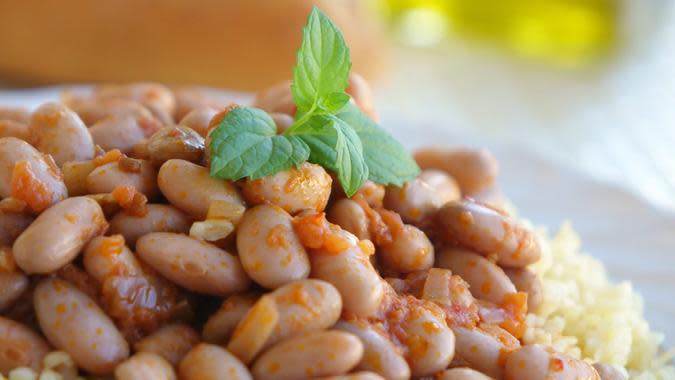
13. Canned Beans
A 2-pound bag of dry pinto beans will yield about 12 cups of cooked beans, according to The Bean Institute, and costs $4.09. A 16-ounce can of cooked pinto beans costs $1.69 and provides only two cups of cooked beans. It would take six cans of pinto beans — which would total $10.14 — to yield the same amount of beans as a 2-pound bag. By buying cooked beans, you more than double the price for the same quantity.
It's true that opening a can of beans and heating them on the stovetop takes less time and effort than picking through pintos to make sure there aren't any bad beans, soaking them, seasoning them and keeping watch while they cook. But you can cook the beans in a slow cooker and effectively set it and forget it. Plus, you'll be able to freeze the leftover beans for another time.
Find Out: Biden Wants To Shut Down Credit Bureaus – What Would That Mean for You?

14. Refrigerated Orange Juice
A can of frozen orange juice concentrate costs $1.99 and makes 48 ounces of juice, which equals 4 cents per ounce. A 64-ounce carton of chilled orange juice from concentrate costs $3.69, which equals about 5.8 cents per ounce.
The price difference between the two could result from the type of packaging used. And although there isn't a huge price difference per ounce between the two types of juices, it can add up if you drink a lot of orange juice.

15. Brewed Tea
A box of 22 teabags for cold-brew iced tea costs $4.99, and it takes four teabags to make 1 gallon of tea. Each box of teabags will make 5 1/2 gallons of tea.
A gallon of bottled tea costs $4.29. The cost, then, for 5 1/2 gallons of bottled tea is about $24 — more than four times the cost of the box of teabags.
Grow Your Funds More: 4 High-Performing Savings Accounts You Don't Need a Bank To Get
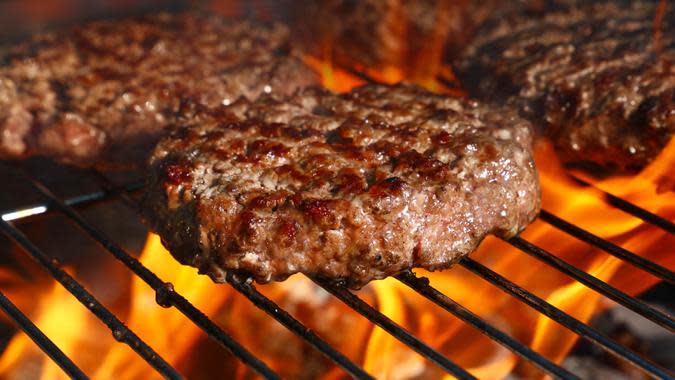
16. Premade Uncooked Hamburger Patties
A package of 93% lean ground beef is $4.99 per pound, and a 1-pound package of raw lean hamburger patties is $5.99 per pound. You can pay $1 more for the convenience of not having to make the patties yourself.
But really, how long would it take you to form your own hamburger patties? Probably a couple of minutes or so — if even that long. Plus, if you prefer seasoning mixed into your burger, rather than just sprinkling it on the outside of the patty, you’ll have to make your own anyway to accomplish your seasoning preference.
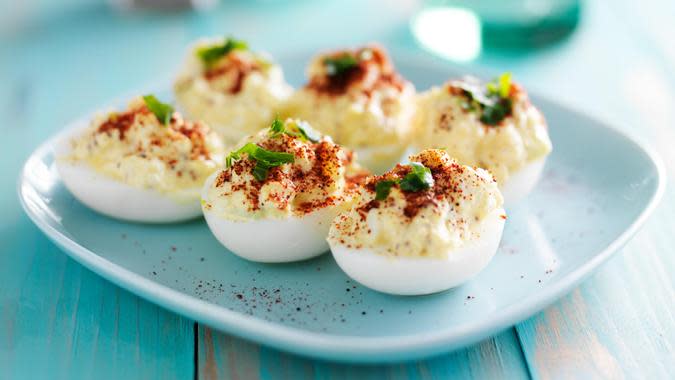
17. Hard-Boiled Eggs
Hard boiling your own eggs takes time. First, you have to wait for the water to boil and then let them cook for around 11 minutes. Then, you must allow the eggs to cool a bit and peel them.
But by buying hard-boiled eggs, you don't have to take any of those steps. The catch is that you're paying someone else to do the work. A half-dozen hard-boiled, cage-free eggs cost $2.99, whereas a dozen similar raw eggs are $3.49. If you opt for raw eggs, you can get double the amount of eggs for only 50 cents more.
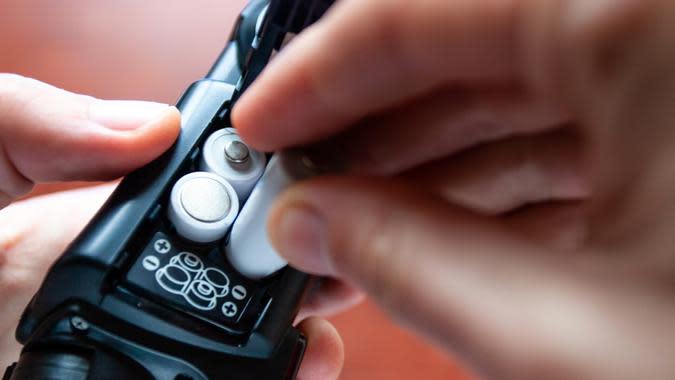
18. Batteries
Batteries are another item that your local grocery store undoubtedly stocks, but they definitely won't be priced at a discount. For example, one package of eight Duracell AA batteries costs $9.99 at the grocery store. You can get the same package of batteries at Walmart for $7.47, a savings of around 32 cents per battery. Still, each battery at Walmart costs more than 93 cents.
An even cheaper option for batteries than either the grocery store or Walmart is Sam's Club. Shopping there requires a paid membership, but you can get a 48-pack of Duracell AA batteries for $21.98, or 46 cents each.

19. Refrigerated Mashed Potatoes
When you're yearning for a home-cooked meal but you just don't have the time to boil and mash potatoes, you might toss a tray of prepared mashed potatoes into your shopping cart. But you might not want to make a habit of doing so.
You'll pay $3.99 for a 20-ounce tray of prepared mashed potatoes, which is approximately 20 cents per ounce. But bagged russet potatoes are around 2 1/2 cents per ounce. That's nearly 18 cents per ounce less than the prepared potatoes.
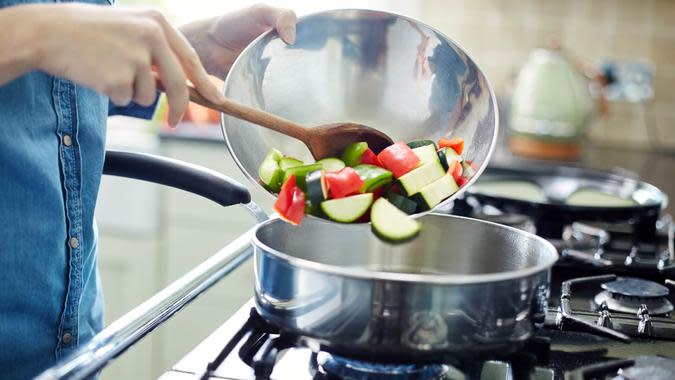
20. Precut Veggies
Although precut veggies are super convenient when hosting a party, you'll pay considerably more for not having to prep. A 12-ounce tray of sliced zucchini and yellow squash is $3.99, which equals 33 cents per ounce.
By buying whole produce, however, you can slash your costs dramatically. Whole zucchini is 8 cents per ounce, and a whole yellow squash is 9 cents per ounce. What you have to decide is if the time you'll save is worth the extra money you'll spend if you buy the precut versions.

21. Gift Cards
When you're running short on time to shop, having the option to grab a gift card while you're picking up a cake can be the perfect solution. But grocery stores aren't known for discounting their gift cards.
You can, however, get bulk discounts at warehouse clubs such as Sam's Club or Costco. A paid membership is required to shop at both stores, but in many cases, it's worth it.
For example, Sam's Club sells a pack of five $10 Starbucks gift cards for $48.48 instead of $50. And Costco sells a four-pack of $25 Build-A-Bear Workshop e-gift cards for only $79.99.
Read: 30 Things You Do That Can Mess Up Your Credit Score

22. Toiletries
Picking up your toiletries or makeup during a grocery store run isn't the wisest choice in most cases. Although you might get lucky and find an in-store special for your favorite toothpaste or shampoo, you generally can save if you opt to buy these items at a discount store such as Walmart.
For example, you'll pay $4.99 for a 12.6-ounce bottle of L'Oreal shampoo at the grocery store. But if you make a trip to Walmart, you can get that same bottle of shampoo for $3.42.
Toothpaste also is more expensive at the supermarket. A 3-ounce tube of Crest 3D White is $3.99 at the grocery store, while the same product at Walmart is only $2.97.

23. Cookware
You'll want to pass on cookware at the supermarket. For example, a Farberware Colorvive Nonstick Bakeware Set retails for $39.51 at the grocery store. Save close to $10 by buying the set at Bed Bath & Beyond, where it costs $29.99.
Bed Bath & Beyond also offers a price-match guarantee. If you find the same item at one of its competitors for cheaper, Bed Bath & Beyond will match the price.
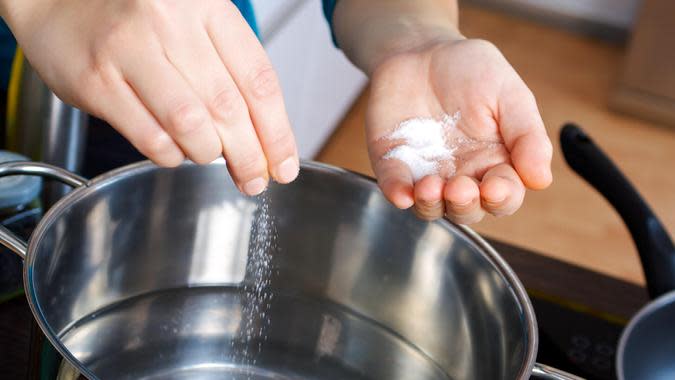
24. Herbs and Spices
If you're used to buying individual bottles of spices at the grocery store, know that you're likely paying a huge markup. Instead, take a look at the prices on prepackaged bulk spices at warehouse clubs and figure out the difference.
Another way to save money on spices is to buy them from a natural food or ethnic food retailer that keeps bulk bins. Save your old spice jars and refill them with bulk spices. Or if you don't want to buy bulk or bagged spices, look for generic brands.
A 4-ounce bottle of house brand seasoned salt at the grocery store retails for $1, while the same size of a name-brand bottle costs $3.49.

25. Cleaning Products
If you have cleaning supplies on your grocery list, you might want to cross them off and wait until you visit a discount store. You also can try buying what you need at a dollar store, though the off-label brands could be more diluted than others.
To get an idea of how much you could save, consider that a two-count package of Mr. Clean Magic Eraser cleaning pads costs $3.99 at the grocery store. At Target, however, you can recognize big savings; the pads are $2.99 for a three-count box.
[rock-component slug="more-from-gobankingrates"]
Cynthia Measom contributed to the reporting for this article.
This article originally appeared on GOBankingRates.com: 25 Extra Grocery Costs You’re Probably Forgetting About

 Yahoo Finance
Yahoo Finance 